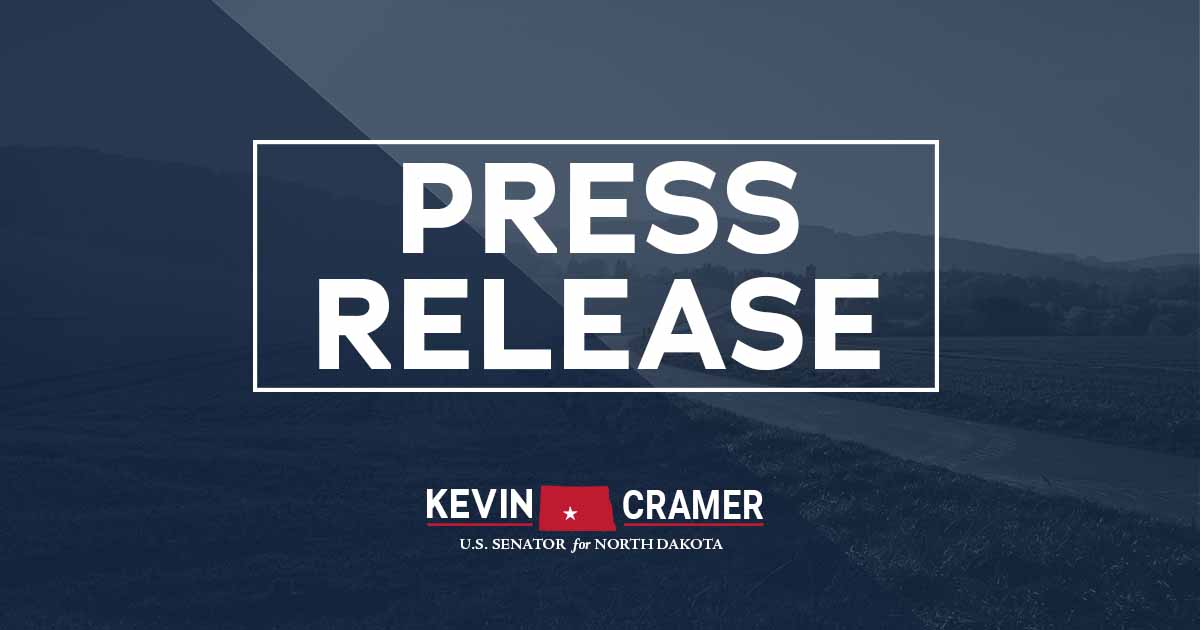Source: United States Senator Kevin Cramer (R-ND)
WASHINGTON – U.S. Senator Kevin Cramer (R-ND) co-sponsored theImproving Seniors’ Timely Access to Care Act, bipartisan and bicameral legislation to improve timely access to quality care for seniors under Medicare Advantage introduced by Senators Roger Marshall (R-KS), Krysten Sinema (D-AZ), and John Thune (R-SD). Improving Seniors’ Timely Access to Care Act will modernize the way Medicare Advantage plans and health care providers use prior authorization, a tool used by health plans to reduce improper payments and unnecessary care by requiring providers to get pre-approval for medical services. This legislation addresses the primary administrative issue for physicians today, and will make the delivery of health care more patient and doctor friendly.
“This bipartisan legislation helps ensure health care is intentionally focused on each individual patient and their needs, not on burdensome or unnecessary paperwork. Our common-sense bill cuts the red tape to provide seniors in North Dakota with quality care in a timely manner,” said Senator Cramer.
Background:
- establish an electronic prior authorization process that would streamline approvals and denials;
- establish national standards for clinical documents that would reduce administrative burdens health care providers and Medicare Advantage plans;
- create a process for real-time decisions for certain items and services that are routinely approved;
- increase transparency that would improve communication channels and utilization between Medicare Advantage plans, health care providers, and patients;
- ensure appropriate care by encouraging Medicare Advantage plans to adopt policies that adhere to evidence-based guidelines; and
- require beneficiary protections that would ensure the electronic prior authorization serves seniors first.
Representatives Suzan DelBene (D-WA), Mike Kelly (R-PA), Ami Bera, M.D. (D-CA), and Larry Bucshon, M.D. (R-IN) introduced companion legislation in the U.S. House of Representatives.
